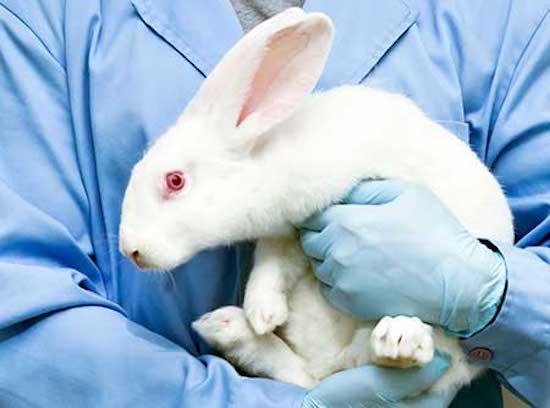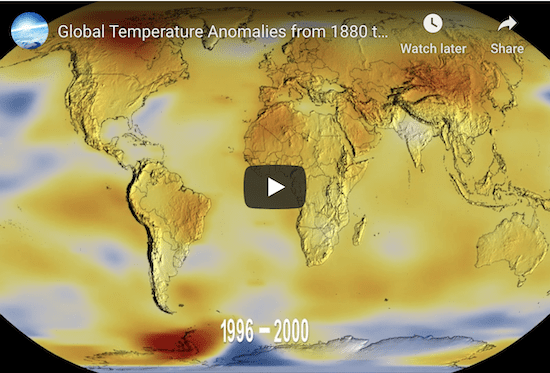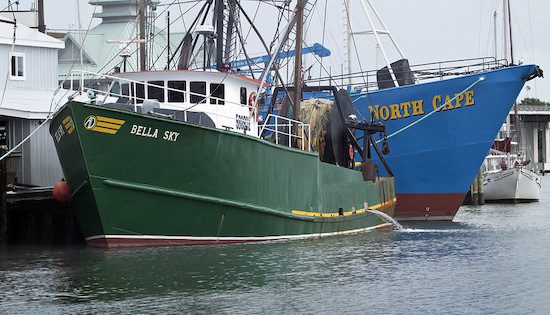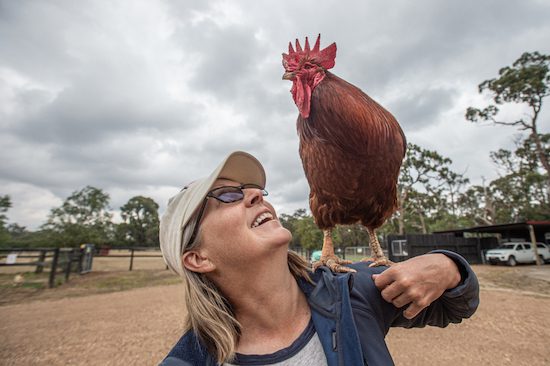


In Defense of Animals: For the sake of new lipstick shades, skin creams, or shampoo formulas, animals endure torturous tests and suffer in silence in laboratories. Cosmetics animal testing includes outdated, scientifically unreliable methods of determining the safety of a product. For these tests, innocent animals—including rabbits, mice, rats, hamsters and guinea pigs—are confined, restrained and exposed to finished cosmetic products or ingredients included in a product’s formula. Skin and eye irritation tests include dripping chemicals into animals’ eyes or rubbing chemicals onto their shaved skin to observe the results, which may include burns, lesions, bleeding, ulcers, and loss of vision. Animals are also forced to inhale substances or subjected to force-feeding studies in which they are forced to ingest chemicals over prolonged periods of time to observe the effects, which may range from general illness to cancer, seizures, birth defects, death, or anything in between. For “lethal dose” tests, animals are forced to consume large amounts of a test substance to determine the dose that kills them. The Humane Cosmetics Act of 2019 would eliminate cruel and ineffective testing and would also ban the sale of animal-tested cosmetics throughout the United States. These tests are not only cruel, but they have long been proven to be unnecessary, inefficient, and inconclusive. Although the anatomy of humans and that of other animals appear to be similar, all species respond differently to chemicals.
>>>Urge your U.S. legislators to support the Humane Cosmetics Act.
Stop Adani: Global insurance broker Marsh is helping Adani, a multinational conglomerate based in India, to secure insurance for the climate-wrecking Carmichael coal mine in Central Queensland, Australia. Insurance is critical for Adani: They can’t build their destructive coal mine without it. Sixteen major insurance companies have already said no to Adani, because smart insurance companies know better than to back risky projects that will destroy their business and fuel the climate crisis. Now Adani are desperate to find an insurer willing to trash their reputation for this dirty mine. That’s where Marsh come in. They’re actively hunting down unethical insurers for Adani’s destructive coal project.
>>>Urge Marsh ahead of their annual general meeting on May 21 to insure our future, not the Carmichael project.
PETA: The 2020 Iditarod ended on March 22. More than 220 dogs had been pulled off the trail because of exhaustion, illness, injury and other causes, leaving the rest to have to work even harder. One of those dogs, Cool Cat, developed twisted intestines and almost died of painful bloat. Another dog named Betty was in critical condition with pneumonia, and Thunder and Charlotte weren’t eating, had lost a lot of weight, and had fevers, diarrhea, and persistent coughs. Despite a whole team of dogs vomiting, several with frostbite, and one almost needing stitches, musher Nicolas Petit forced them to continue the grueling race anyway. And Mitch Seavey—already the subject of a recent PETA undercover investigation—reportedly threw a dog down and pinned her muzzle to the ground while on the race’s livestream. In late 2018 and early 2019, a PETA eyewitness worked at two dog kennels owned by former Iditarod champions and found widespread neglect and suffering. Dogs were denied veterinary care for painful injuries, kept constantly chained next to dilapidated boxes and plastic barrels in the bitter cold, and forced to run even when they were exhausted and dehydrated.
>>>Urge Millennium Hotels and Resorts’ Lakefront Anchorage Hotel to stop sponsoring the cruel and deadly Iditarod.
Cause for concern…

- 2020 on track to be Earth’s warmest on record, NOAA says (Andrew Freedman, The Washington Post)
- Trump rolls back fuel economy standards in biggest step backward for climate (As You Sow)
- Climate-driven megadrought is emerging in western U.S.: Warming may be triggering era worse than any in recorded history (Earth Institute at Columbia University)
- White House moves to weaken EPA rule on toxic compounds (Ellen Knickmeyer, The Associated Press)
- A decade later, Gulf residents suffer from BP’s toxic legacy (Rocky Kistner, HuffPost)
- Farmworkers deserve a raise, not a pay cut (Scott Faber, Environmental Working Group)
- Poor animal welfare laws may lead to more global epidemics like coronavirus (World Animal Protection, Animal People Forum)
- Bears, “milked” and killed for their bile, are one of the least-known victims of COVID-19 pandemic (Wayne Pacelle, Animal Wellness Action)
- Thailand’s elephant community caught in coronavirus fallout (Ron Gluckman, Nikkei Asian Review)
- Poachers kill more rhinos as coronavirus halts tourism to Africa (Annie Roth, The New York Times)
- A study at zoos shows that 42% of the animals were infected with Toxoplasma gondii (University of Córdoba, Phys.org)
- One in five giant marine species will become extinct within century, scientists predict (Lucy Connolly, UNILAD)
- Climate change could trigger sudden, potentially catastrophic losses of wildlife in regions around the world over the coming decades (Matthew Green, Reuters)
- New maps of Malaysian Borneo reveal worsening carbon losses along forest edges (Cosmos Magazine)
Round of applause…

- With fishing fleets tied up, marine life has a chance to recover (Laura Millan Lombrana, Bloomberg Green)
- U.S. delays oil pipeline approvals after environmental ruling (Matthew Brown, The Associated Press)
- Major blow to Keystone XL pipeline as judge revokes key permit (Nina Lakhani, The Guardian)
- Stopping animal abuse will prevent future pandemics, says leading scientist (Oxford Centre for Animal Ethics, Animal People Forum)
- China reclassifies dogs as pets instead of livestock (Kaelan Deese, The Hill)
- Eating cats and dogs banned in a second city in China in wake of COVID-19 pandemic (Aristos Georgiou, Newsweek)
- Coronavirus pandemic is creating a novel opportunity for Spain to abolish bullfighting once and for all (Despina Parthemos, Sentient Media)
- The uplifting tale of these tiny island foxes, nearly wiped out by disaster (Michael Parfit, National Geographic)
- Monarch butterfly gets protection in ‘historic’ deal (Michael Doyle, E&E News)
- Coronavirus: Here’s how you can help voiceless furry friends affected by the lockdown (Anju Ann Mathew, YourStory)
- Veganism finding its path even in meat-loving Hungary (David Holzer, Budapest Business Journal)
- Vegan backyard foraging: 7 simple steps to start today (Graceann Barrett, VegNews)
Parting thought…

“If a man aspires towards a righteous life, his first act of abstinence is from injury to animals.” —Albert Einstein
Earth | Food | Life (EFL) explores the critical and often interconnected issues facing the climate/environment, food/agriculture and nature/animal rights, and champions action; specifically, how responsible citizens, voters and consumers can help put society on an ethical path of sustainability that respects the rights of all species who call this planet home. EFL emphasizes the idea that everything is connected, so every decision matters.
Click here to support the work of EFL and the Independent Media Institute.
Questions, comments, suggestions, submissions? Contact EFL editor Reynard Loki at [email protected]. Follow EFL on Twitter @EarthFoodLife.